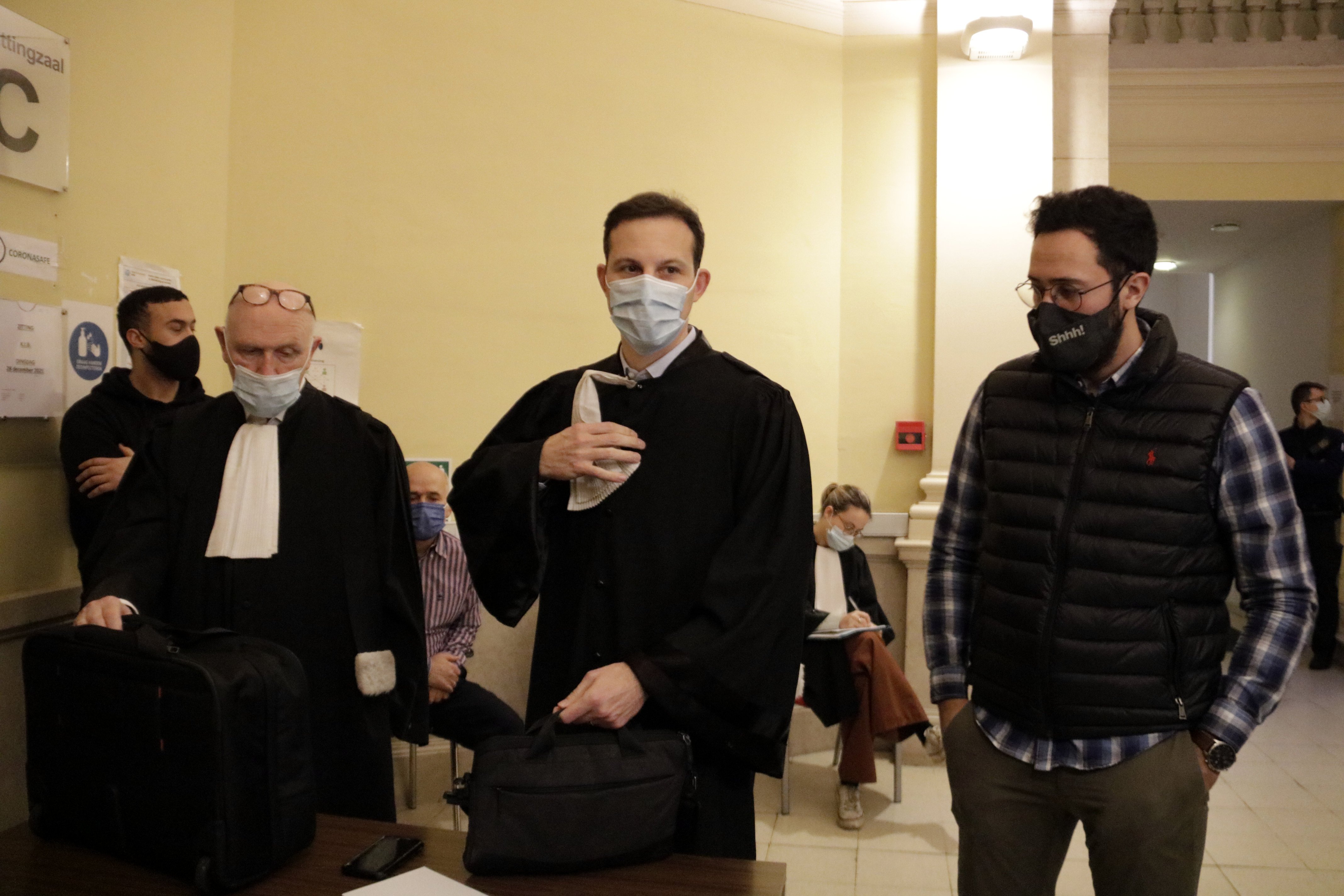The three magistrates of the Court of Appeal of Ghent, in Belgium, are forceful in the resolution, released today, on the criminal threats for which rapper Valtònyc was sentenced to six months in prison by the Spanish state. "In the Belgian domestic legal system, the aforementioned conduct is not punishable", and, therefore, they do not approve his extradition. Spain’s National Audience court requested the extradition of Mallorcan Josep Miquel Arenas, Valtònyc, in May 2018 for the conviction of three crimes: glorification of terrorism (two years in prison), insults towards the Crown (one year) and criminal threaths (six months). The first two were dismissed by Belgian authorities, and now the refusal to hand him over for the third is confirmed.
The court, in eighteen pages, explains that the Spanish state’s court sent a second arrest warrant for Valtònyc to Belgian authorities, for the lyrics in one of his songs: "Jorge Campos deserves an atomic bomb. I'm bringing out the artillery and everything I need. We want all these wild boars to die". Campos is currently a deputy for Vox in the Balearic Parliament.
Campos, current Vox deputy
It is stated that the aforementioned song appeared on a CD and a video (which included a photo of Jorge Campos) with the song, which was distributed through a YouTube channel. It is also stated that "the ruling by Spain’s National Audience court shows that Jorge Campos is president of Círculo Balear, an anti-Catalan movement, and would have suffered radical attacks from various pro-independence groups in Mallorca with which Valtònyc would have had connections".
However, the Belgian court reasons that "the first judge rightly noted in this regard that the aforementioned acts of verbal threats are not punishable under Belgian law, unconditionally" and adds that "it is not stated in the available documents whether the lyrics of the song were published".
Before, the court of Ghent explains that "it cannot take the place of the Spanish judicial authorities", which offer a final judgment in this matter. It specifies, however, that "it does have to review the double incrimination", which in this case it considers to not be fulfilled. That is to say, Valtònyc's song would not entail a criminal threat in Belgium and, therefore, he cannot be extradited to Spain.
Insults against the crown
The court also recalls that at its request, on September 15th, 2020, it asked about Article 1 of April 6th, 1847’s law; punishing insults towards the crown —which, among other things, criminalizes insults, shouts or threats expressed publicly towards "the King himself"— in connection with Article 19 of the Constitution in conjunction with Article 10 of the European Court of Human Rights (ECHR), and that the Constitutional Court ruled against Valtònyc on October 28th, 2021.
Specifically, The Belgian Constitutional Court ruled that Article 1 of the April 6th, 1847 law; punishing insults towards the King, violates Article 19 of the Constitution, when read in conjunction with Article 10 of the European Convention on Human Rights. The Constitutional Court referred, among others, to the ruling of Otegi Mondragon against Spain, by the ECHR, in which the mentioned European court stated (among others) that the interest of a state in the protection of the reputation of its own head of state cannot justify granting this head of state a special privilege or protection in regard to the right to spread of information and freedom of expression about the head of state. That is why the Ghent Court of Appeal refused to hand over Valtònyc for the crime of insults towards the crown.
The Belgian court already ruled out handing Valtònyc over because he was sentenced to two years in prison for glorification of terrorism, and for extradition to be considered, a minimum sentence of three years in prison is needed. However, it asked the Court of Justice of the European Union at what point the crime should be considered: when the criminal investigation is carried out or later, when request for the Euro warrant was submitted, since the Spanish court argued that this crime had been extended to three years. The Belgian court also recalls: "This court considers that its own domestic legal system does not punish glorification of terrorism and the humiliation of victims".

